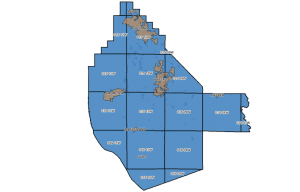Pritzker’s agenda passes
Democratic Gov. JB Pritzker scored several victories over the weekend, as the General Assembly passed numerous bills that were integral parts of his agenda.
In a historic final weekend, lawmakers passed a budget, approved a capital plan, legalized recreational marijuana, expanded abortion rights, OK’d tax rates, sought to provide property tax relief, strengthened Scott’s Law, raised teachers’ salaries and more.
“The people of Illinois can be proud that we are putting state government back on the side of working families,” Pritzker said after the legislative session ended.
“They can be proud that we are restoring fiscal responsibility after many years of crisis and deficits.”
Budget
One of the biggest ticket items the Illinois Senate and House of Representatives approved was an approximately $40 billion budget.
The bipartisan measure, which leaders in both political parties said was balanced, passed after both chambers went into overtime until Sunday.
The 1,581-page budget increases funding to several state agencies.
It also ups early childhood education funding $50 million, increases higher education funding $134 million and raises funding for K-12 education by $25 million more than mandated.
The budget also allows for the state to borrow $1.2 billion to pay overdue bills.
State Sen. Paul Schimpf (R-Waterloo) joined all Senate Republicans in voting against the budget.
“At a time when Illinois faces extreme fiscal challenges, we need more than a band-aid, status quo budget,” he said. “Spending 99.6 percent of incoming revenue for a new record spending level of over $40 billion is not responsible government. This budget fails to limit spending growth or provide any structural reforms, and does nothing to solve our long term problems.”
State Rep. Nathan Reitz (D-Steeleville) joined 83 representatives, including 10 Republicans, in approving the budget.
“I voted to pass a balanced budget… that moves the state forward by paying down more than $1 billion in old bills incurred as a result of the budget crisis,” Reitz said. “This balanced budget reflects our commitment to controlling spending while investing in health care, education, resources for the vulnerable and career training to prepare people for high-wage jobs in the 21st century economy.”
Capital plan
The capital plan legislators passed was even more expensive than the budget, as it covers about $45 billion in infrastructure projects.
The plan, the first of its kind in 10 years, got support from both parties in both chambers.
It calls for the state to spend about $33 billion on roads and bridges, $3.5 billion on education projects and the rest on initiatives like expanding rural broadband internet and conservation efforts over the next few years.
That includes $325,000 for Waterloo and Columbia for costs associated with infrastructure improvements and $225,000 for Dupo for that same reason.
The work will be paid for through a number of new or increased taxes including doubling the gas tax to 38 cents per gallon, upping the cost for vehicle registration to $151 for most vehicles, levying a tax on parking in paid parking lots or garages, increasing the tax on a package of cigarettes by $1 and imposing the sales tax on items bought online from out-of-state stores with no physical presence in Illinois.
Like all but two measure mentioned in this story, those are effective once Pritzker signs the law.
Another key way to pay for the bill was legalizing sports betting and expanding gambling overall in the state. That is expected to net the state $660 million next year.
The state expanded gambling by adding six casino licenses, increasing the maximum amount a person can wager at a video gaming terminal and upping the tax on terminal income by 4 percent.
Schimpf voted against the plan and the taxes associated with it.
“Although Illinois has a real need for transportation infrastructure improvements, I am unable to support a plan that is based on extreme DMV fee increases and a doubling of motor fuel taxes,” he said. “We have a moral obligation to try reduce costs before we ask the hard working families of Illinois to pay a cent more.”
Reitz voted for the plan, except for the bill that raised the gas tax and vehicle registration costs.
“Illinoisans are paying $16.4 billion per year to repair their vehicles as a direct result of our crumbling roads,” he said. “This plan will ensure resources across the state are allocated appropriately to repair outdated transportation infrastructure, including roads and bridges. Furthermore, it will drive economic growth by creating jobs for workers tasked with rehabilitating our deteriorating infrastructure.”
Recreational cannabis
Another new revenue stream will be from recreational adult-use cannabis, as Illinois became the first state to legalize recreational marijuana via its legislature instead of a ballot initiative.
Only two Republicans voted for the bill, which had strong Democratic support. Both Schimpf and Reitz voted “no.”
Starting Jan. 1, residents 21 and over can possess up to 30 grams of marijuana for recreational use. Citizens can also possess five grams of cannabis concentrate and half a gram of THC in a cannabis-infused product.
THC is the compound in cannabis that gets people high.
Tourists will be able to posses half those amounts.
The bill also provides for licensing of those who cultivate, process, transport sell the drug, along with the regulation of the drug itself.
Marijuana purchases will be taxed at 10 percent for those products with less than 35 percent THC, 25 percent for those more than that amount and 20 percent for cannabis-infused products.
All told, the state estimates it should get around $88 million from the industry in its first year. A portion of that revenue goes into a community reinvestment program for those areas “disproportionately impacted” by the war on drugs. Twenty percent also funds mental health and substance abuse programs, eight percent goes to law enforcement and 35 percent goes to the state’s general fund.
A final key component is the law provides for the expungement of criminal records of those with minor marijuana offenses. That includes those who possessed 30 grams and under and did not commit a violent crime.
The bill forbids municipalities from outlawing marijuana.
RHA
On Friday, the General Assembly passed another controversial measure that critics and advocates agree makes Illinois the most liberal state for reproductive health care.
The legislation, called the Reproductive Health Care Act, says everyone has the right to make decisions about their reproductive health, including whether to give birth or have an abortion. It also stipulates that a “fertilized egg, embryo or fetus” does not have any independent rights.
The RHA requires insurance companies to cover abortions if the policy provides other pregnancy-related benefits. There can be no limitation or fee associated with abortion coverage that is greater than those for other pregnancy benefits.
Additionally, the law repeals older laws that were often entangled in court battles, such as the Illinois Abortion Law of 1975 and the Partial-Birth Abortion Ban Act.
That means a health care professional can provide an abortion if the fetus is viable if, in his or her judgement, “the abortion is necessary to protect the life or health of the patient.”
The bill also prohibits municipalities from passing more restrictive laws. Those aggrieved by the law can sue the state.
Schimpf and Reitz both voted against the measure.
Income tax rates
Politicians also OK’d rates for the graduated income tax.
Those who file a tax return as single pay 4.75 percent on taxable income up to the first $10,000; 4.9 percent on income between $10,001 and $100,000; 4.95 percent on income between $100,001 and $250,000; 7.75 percent on income between $250,001 and $350,000; 7.85 percent on income between $350,001 and $750,000; and 7.99 percent on all income if a single filer makes over $750,000.
For joint filers, the same rates apply but they cover different ranges.
The 7.75 percent rate is on income between $250,001 and $500,000; the 7.85 percent rate applies to income between $500,000 and $1 million; and joint filers making over $1 million pay 7.99 percent on all income.
The rates will be used if the majority of voters in the 2020 election or 60 percent of those voting on the question, income OK the constitutional amendment.
Schimpf voted “no,” while Reitz voted “yes” on the bill, which also does a few other things.
Property tax relief
Schimpf and Reitz were among the majority of lawmakers who voted “yes” on two bills aimed at providing property tax relief to Illinois residents.
One law creates the property tax relief fund to pay rebates to taxpayers with general homestead exemptions.
Another measure creates a tax force to determine why property taxes keep increasing, review best practice to create property tax relief and make recommendations on how to do that.
Scott’s Law
Legislators unanimously OK’d changes that would strengthen Scott’s Law, which requires individuals to move over for stopped emergency vehicles while driving.
Fines will now be higher – at least $250 for the first offense – and the level of the crime was increased to a Class 2 felony if death or harm to a first responder occurs.
There is now also a fund that goes toward educating motorists on Scott’s Law and hiring off-duty Illinois State Police officers for enforcement.
Finally, lawmakers will create a task force to study why there have been so many Scott’s Law violations this year and similar concerns.
Teacher salaries
In a final noteworthy measure, both chambers passed a bill that would raise the minimum annual salary for teachers to $40,000 by the 2023-24 school year.
Schimpf did not vote for that change, but Reitz did.






